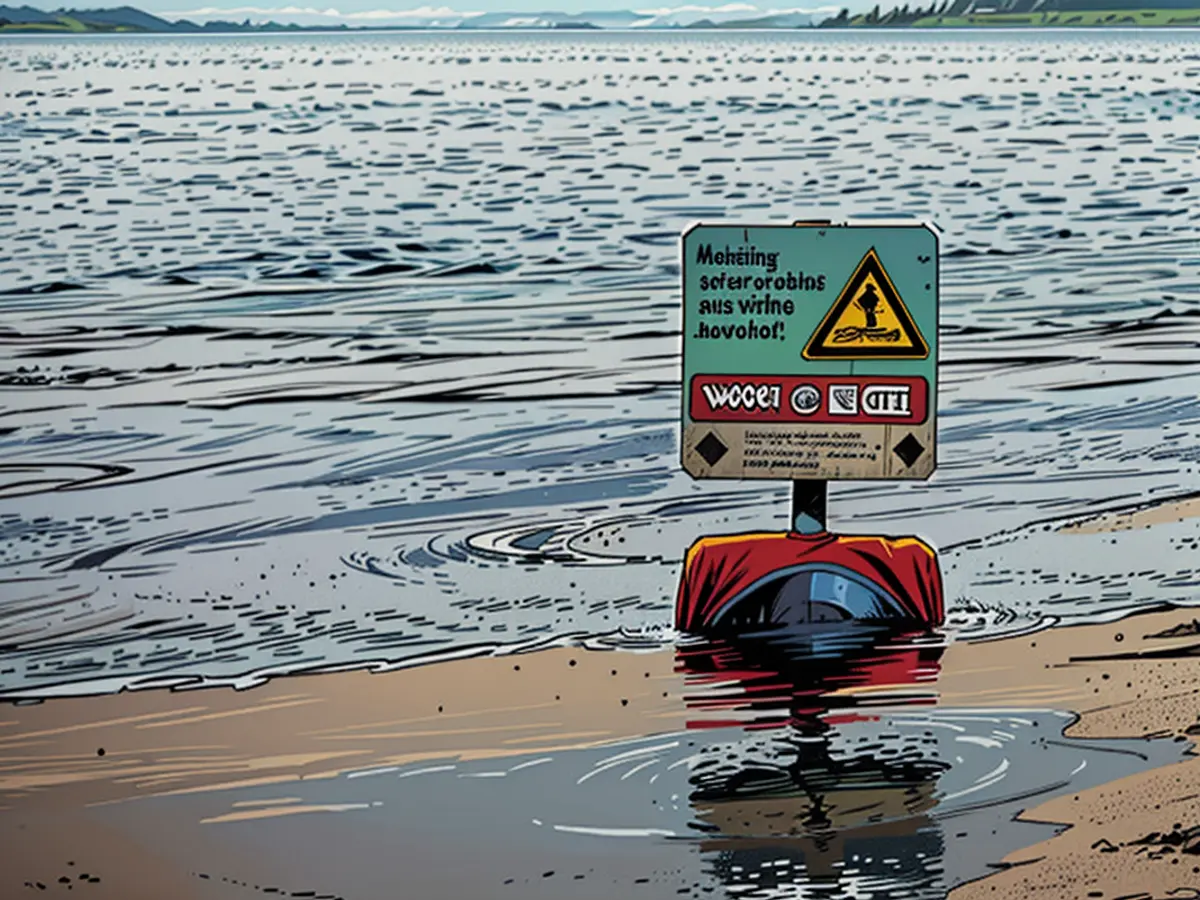The relevant state administration is making decisions. - The state legislature deliberates on flood defenses.
A recent flood in southern Germany, resulting in several deaths and financial damages in the billions, has sparked debates once again about adequate flood protection in North Rhine-Westphalia (NRW). Opposition members in the state legislature claim that the current NRW government, led by the Greens and the Blacks, has been negligent in implementing flood protection measures.
In an interview on Wednesday, the Social Democrats (SPD), Free Democratic Party (FDP), and Alternative for Germany (AfD) voiced concerns that NRW had requested fewer federal funds for flood protection than it was entitled to. They blamed the government for not prioritizing flood protection.
Environment Minister Oliver Krischer (Greens) defended the government, arguing that they were being one-sidedly represented. In fact, investments in flood protection are higher in 2023 than before, he noted. Additionally, NRW could potentially receive more funding for other flood-related projects.
Head of the FDP parliamentary group, Werner Pfeil, expressed concern that North Rhine-Westphalia was under-investing in flood protection compared to other German states like Bavaria and Baden-Württemberg. He claimed that only 11.5 million euros had been requested out of the 438 million euros earmarked for flood protection from 2018 to 2023. "The insufficient fund requests and the lack of investment in flood protection are ultimately a political bankruptcy," Pfeil said.
In response, Krischer pointed out that the government was only focusing on one type of funding rather than all the financing resources available. Despite the current. situation, he assured that NRW had made significant improvements in flood protection. For example, during the Christmas flood at the end of 2021, minimal damage occurred.
However, Krischer acknowledged that the flood protection facilities in NRW are not geared up for the effects of climate change and extreme weather conditions. There are 530 kilometers of dikes along the rivers in NRW and at least half of them require attention. The government has put together a maintenance plan for the dikes since 2014; no previous administration had acted on it until now.
The black-green government has established over 100 new positions in relevant regulatory bodies, according to Krischer. But he deemed the lack of requesting a quarter of the funds from a polder project terminated by the FDP unsatisfactory. Krischer also spoke about the steady progress in the implementation of polder projects to reduce floodplains in Cologne-Worringen, with a decision on plan approval scheduled for this year.
AfD's Andreas Keith criticized the government for the slow progress of various flood protection projects, including dike repairs. He cited a project to repair dikes along rivers, which had begun as early as 2014 but had made little headway. The flood protection initiatives demonstrated "half-hearted efforts and insufficient progress."
SPD MP Alexander Vogt called for more action from Krischer and urged him to prioritize flood protection in North Rhine-Westphalia. Vogt argued that the flood in 2021 had served as a wake-up call and that measures must be taken to avoid similar disasters happening in the future.
Green faction leader Verena Schäffer claimed that the FDP's environmental record was questionable in both North Rhine-Westphalia and the entire country. Schäffer highlighted the FDP's opposition to climate protection and the anti-wind energy stance. Schäffer insisted that both climate action and adaptation to climate change's repercussions are necessary.
CDU MP Bianca Winkelmann insisted that the opposition was deliberately fueling emotions and fears. While Krischer's government had allocated nearly 84 million euros to flood protection in the 2024 budget, she acknowledged that there would still be an inherent risk despite all efforts in flood protection.
Read also:
- The discussions in Parliament about flood protection in Southern Germany, particularly in North Rhine-Westphalia (NRW), include concerns raised by the FDP, SPD, and AfD.
- The state government in Baden-Württemberg has investments in flood protection that surpass those of the current NRW government.
- Werner Pfeil, head of the FDP parliamentary group, has criticized NRW for under-investing in flood protection compared to other German states.
- Despite the concerns raised regarding flood protection funding, Environment Minister Oliver Krischer asserts that investments in this area have increased in 2023.
- The AfD's Andreas Keith has accused the government of slow progress in various flood protection projects and dike repairs.
- The billions of euros in damages caused by recent floods in Southern Germany has put pressure on the state government to prioritize flood protection measures.
- In response to the flood threats posed by climate change and extreme weather conditions, the German government has established over 100 new positions in relevant regulatory bodies.
- Bianca Winkelmann, a CDU MP, acknowledges that while significant efforts have been made in flood protection, there will always be an inherent risk involved.








